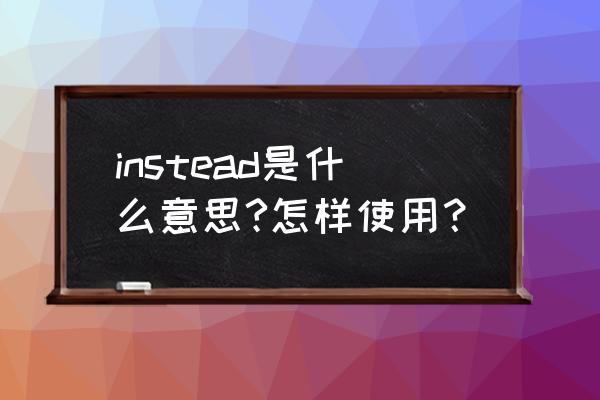instead用法两种

instead是什么意思?怎样使用?
instead是什么意思?怎样使用?
instead的用法:
1、instead是副词,只能单独使用。基本意思是“代替”,可依据上下文灵活翻译,有时甚至干脆不译。instead可位于句首,连接上下句。通常是上句先否定一种情况,再以instead引出下句,提出相反的情况。
2、instead也可位于句末,可用于两个独立的句子,也可用于并列句的后一句中,还可用于带有状语从句的主句中,这时常译为“反之”,“相反”。
3、instead of是短语介词,其后可接名词、代词、动名词,有时也可接形容词、动词不定式、介词短语等。instead of前后两部分的意思一般是一正一反,可灵活译为“(用…)代替…”“(是…)而不是…”“并非”“反而”等。
4、instead一般与of连用作为介词词组,后面可接名词和代词意外的词,如形容词,副词,动词和介词。instead 可以是形容词,一般放于句首或句尾。
5、注意instead of和without的区别,两者不要混用。一般情况下,用人,事,行为去代替另外的人,事,或行为时,用instead of。表示人,事,行为不和其他的一起时,用without。扩展资料instead 读法 英 [ɪn'sted] 美 [ɪn'stɛd] 作副词的意思是:代替;反而;相反短语:1、go instead 代某人去2、drink beer instead 改喝啤酒3、laugh instead 反倒笑了4、take one's class instead 代某人的课例句:1、My husband asked why I couldn't just forget about dieting and eat normally instead.丈夫问我为什么就不能忘掉节食而正常吃饭。2、They raised prices and cut production, instead of cutting costs.他们提高了价格,减少了产量,而没有削减成本。